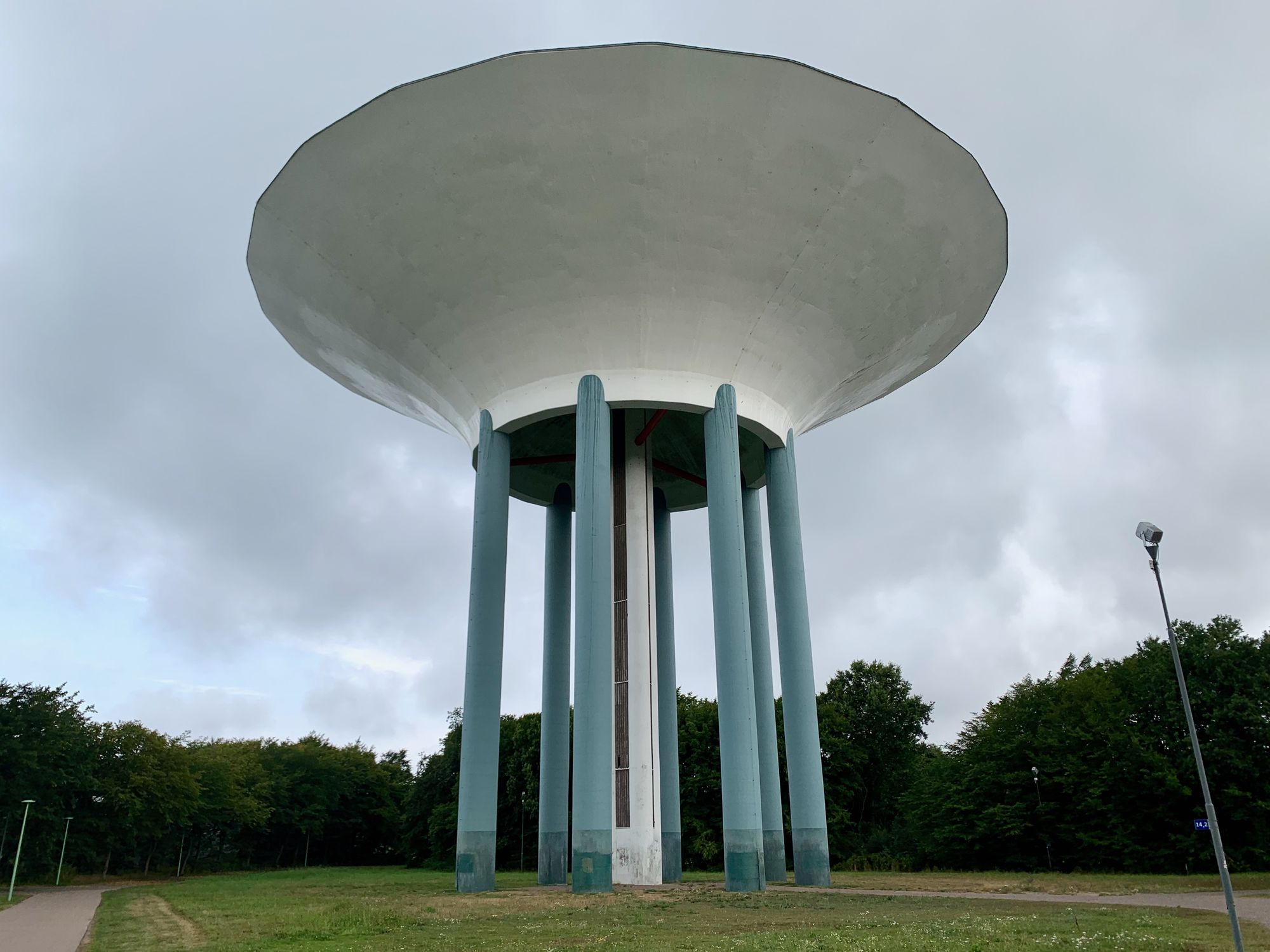Tenday Notes 11 Aug - 20 Aug 2022

Every ten days or so, I share a quick digest of what I've been working on and reading. Here's the latest. More in the series here.
I've largely finished off the sonification work that I was talking about last time, though there might be a handful more edits. That means this week it's back to my project with Conservation International - putting together a report on natural climate solutions. We're in the final stretch on that now, and assuming all goes well, it should get a public release in about a month or so. I'll link here when it does.
Tonight (19 August) I'm going to be streaming a workshop on data sonification for the lines community. Tune in at 1900 Stockholm time on Twitch. There'll be a recording after if you miss it.

Last week, I recorded an interview with Alli Torban for her Data Viz Today podcast on the subject of creativity. And because Alli is extremely efficient at getting podcasts out the door, the episode is already released!

We talked for about half an hour about a bunch of things - including how creativity can be defined, where creative inspiration comes from, and how the privilege of being able to express creativity is unfairly distributed across humankind. Listen here (or in your favourite podcast client - search for "data viz today").
As I discuss in the podcast, my newsletter/blog is an invaluable creative tool for me in terms of "thinking in public" about stuff. So if creativity is a topic that interests you, then I'd love to hear your reflections on the things I talked about in the podcast. Hit reply and let me know.
I've put the official Loud Numbers t-shirts up for sale again, after finally sorting out a bug with the Printful/Etsy integration. If your dream in life is to own a t-shirt that says "My favourite genre is sonification", then your dreams are about to come true.

I've noticed a new lie being peddled by politicians previously opposed to climate action. "We'll solve climate change without you needing to change your habits."
It's the same empty promise that the aviation industry and the food & plastics industries have been using for a little while - "keep consuming, and we'll do some magic behind the scenes to fix the effects of that consumption". These industries, which profit substantially from those consumption habits, have recognised that there is a growing demand for a new way of doing things, and want to push that back as long as possible.
The truth is that there is no magic, that addressing the climate crisis (now we've left it so late) does require major habit changes from almost everyone. It means eating much less meat than we do right now. It means flying much less. It means buying much less stuff, and buying second hand when you can. It means not owning an SUV, and ideally not owning a car at all - even an electric one.
So next time you hear a politician telling you that everything will be fine and that you don't need to do anything different, know that they are telling you a lie. An honest politician would instead be saying something like "We will all need to change how we live a bit, and my government will work to make those changes as easy and cheap as possible."
How fun is this - a guide to representing birdsong in lines and squiggles. It's based on how the sounds appear on a spectrograph, which is fun because I've been using the BirdNET app recently to try to identify birds from their calls, and it displays the recording as a spectrograph.
Thanks to Giuseppe for the tip!
Some of the tools being built off recent advances in machine learning technology are quite interesting. I downloaded a new terminal this week, called Warp (thanks for the invite, Oliver!), and it comes with a function where you can describe what you want to do and it'll generate the right command for you. I tested it by writing "convert an audio track from mono to stereo", and it gave me back ffmpeg -i input.mp3 -ac 2 output.mp3, which is frankly quite amazing.

Similarly amazing, but in the opposite direction, is Explain Jargon - a Chrome extension that will turn a complicated paragraph into easier-to-understand English.

I fed it a random paragraph from the latest IPCC report:
Digitalisation could also lead to systemic changes by enabling smart mobility. The smart mobility paradigm refers to the process and practices of assimilation of ICTs and other sophisticated hi-technology innovations into transport. The synergies of emerging technologies and shared economy could overcome some of the challenges facing the adoption of emerging technologies and enable the expected large growth in emerging cities to be more sustainable.
It gave me back:
Digitalisation could change everything. If the government makes it easier to get new ways to transport (like self-driving cars, or public transportation with computers), people could start using those ways more often. That will lead to a more efficient transportation system overall. If we can find affordable ways to move goods in cities, and we can develop technologies that make it easy to share things (like cars and houses), then we can create a better system of moving things around. This will help build better cities.
It doesn't quiiiite capture the original meaning, and the grammar is slightly off, but it's MUCH more readable than the original. I can see myself genuinely using this quite a lot.
Finally, if you're interested in making or using sounds with code (and who isn't?) then check out this guide from Alison Parrish on how to use the sound input and output capabilities of P5.js. It's a lovely writeup, not too long, simple and easy to understand. At the end you even get to create your own spectrograph!
That's all for today. See you in ten days!
- Duncan






